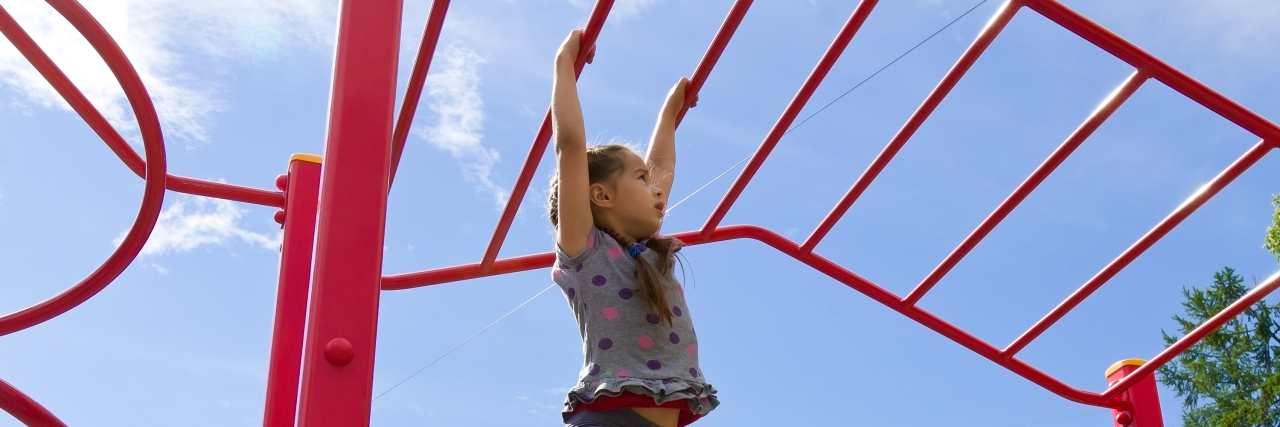I failed at the monkey bars.
Remember those things? When I was a kid, they taunted me. Gym class, recess and after school, I would try, over and over, to hang on to each bar long enough to get to the next one.
• What is Ehlers-Danlos Syndrome?
• What Are Common Ehlers-Danlos Syndrome Symptoms?
I never could.
Over the years, the monkey bars became symbolic of all the things I somehow couldn’t get my body to do “right.” The “reasons” for my failure — as explained by others and eventually myself — piled up in my head:
I’m too heavy.
I’m weak.
I’m a wimp.
I wasn’t trying hard enough.
As far as I knew, my body was “normal,” so my repeated failures became intensely personalized and a source of shame. I saw them as a character failing, and negative thoughts filled my head:
I suck.
I’m not as good as everyone else.
I’m not worthy of success, love, care, gentleness, kindness etc.
This thought pattern was a three-course buffet for my gremlin.
In coaching terms, a gremlin is something we all have. It’s your inner critic — that little voice inside your head that insists you don’t measure up in some way. It’s a protective mechanism that got power-hungry and out of control.
Gremlins urge us into comparing, and they feed on shame. They can make anyone’s life miserable. For people with chronic illnesses, gremlins can be extraordinarily pernicious and persistent.
We’re often acutely aware that we aren’t “normal” (whatever the heck that is). The medical model indoctrinates us to believe that disability/chronic illness is a personal problem — that we can’t participate because our body or mind is “defective” in some way.
The upshot of all this is that the gremlin of a chronically ill person is constantly being reinforced by everything in the world around us. Yikes. Talk about a double whammy.
But what if your gremlin is wrong?
Recently I talked with some folks who have the same connective tissue disorder as I do, Ehlers-Danlos syndrome. Turns out, none of them could do the monkey bars either. We always felt like our joints were starting to dislocate (which they probably were), and the skin was threatening to tear off our hands (which it probably was). Which meant — drum roll please — I’m normal.
I began to rethink and reframe my abilities and how my body works. My body is not better or worse than any other body. Just different. I can do some things “healthy” people can’t, and they can do some things I can’t. It’s like I’m a different breed of human. Is a German Shepherd “better” than a Golden Retriever? Of course not. They’re just different, with different gifts, skills and abilities.
What gifts, skills and abilities does your “breed” come with? How does your illness give you an advantage? And how can you make the most of all of these things to move toward your goals? I’d really love to know!
This story originally appeared on Cara Sachs Coaching.
Getty image by Zabavna.

